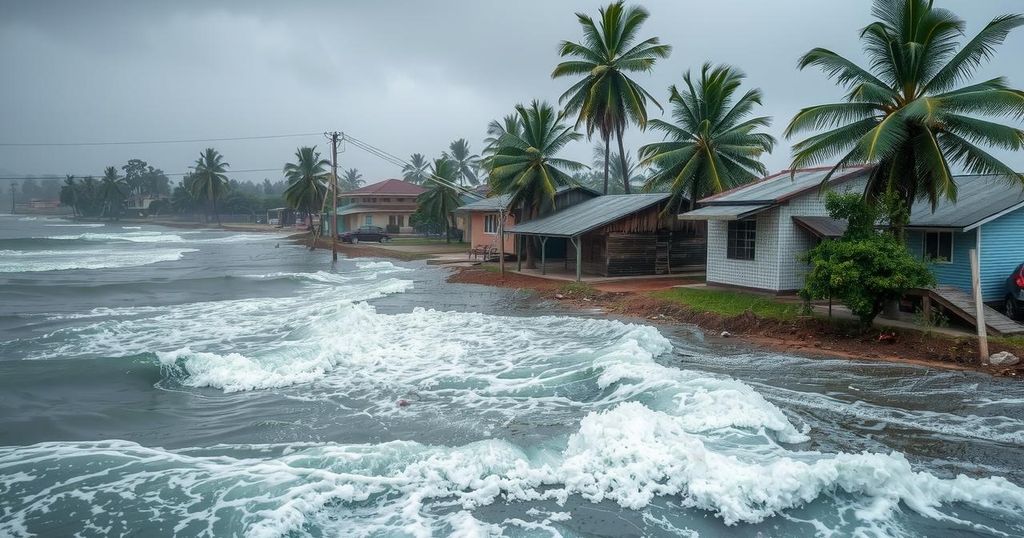Cyclone Chido Causes Devastation in Malawi, Leading to 13 Deaths and 45,000 Affected

Cyclone Chido has killed 13 in Malawi and affected 45,000 individuals, after causing significant damage in Mayotte and Mozambique. The storm led to injuries and displacements, highlighting the ongoing humanitarian challenges in the region.
Cyclone Chido has wreaked havoc in Malawi, resulting in 13 fatalities and affecting approximately 45,000 individuals. This destructive weather system, which initially devastated Mayotte in France, continued to inflict damage as it moved inland for over 500 kilometers. During its passage through Malawi, particularly impacting the city of Blantyre, the cyclone not only injured nearly 30 people but also displaced 227 individuals from 10,159 affected households, according to the Department of Disaster Management Affairs.
Malawi, already grappling with significant poverty—71 percent of its populace lives in extreme poverty as per World Bank reports—now faces an intensified humanitarian crisis. Cyclone Chido’s toll extends beyond Malawi; it has claimed at least 31 lives and left over 1,000 injured in Mayotte, while in Mozambique, the cyclone has resulted in a reported 45 deaths and nearly 500 injuries. The aftermath necessitates urgent responses to aid recovery and support to the affected populations across these regions.
The occurrence of Cyclone Chido illustrates the growing frequency and intensity of tropical cyclones in southern Africa, exacerbated by climate change. The regions impacted, particularly Malawi, Mozambique, and Mayotte, often struggle with infrastructural challenges and socioeconomic vulnerabilities, making them susceptible to the devastating effects of such natural disasters. Cyclone Chido serves as a reminder of the urgent need for effective disaster management systems and international support to build resilience in these communities.
In summary, Cyclone Chido has profoundly impacted Malawi, resulting in fatalities, injuries, and widespread displacement among thousands of residents in a nation already experiencing severe poverty. The storm’s effects are part of a broader regional catastrophe affecting multiple countries, underscoring the necessity for disaster preparedness and humanitarian assistance in the face of increasingly severe weather events.
Original Source: www.barrons.com







